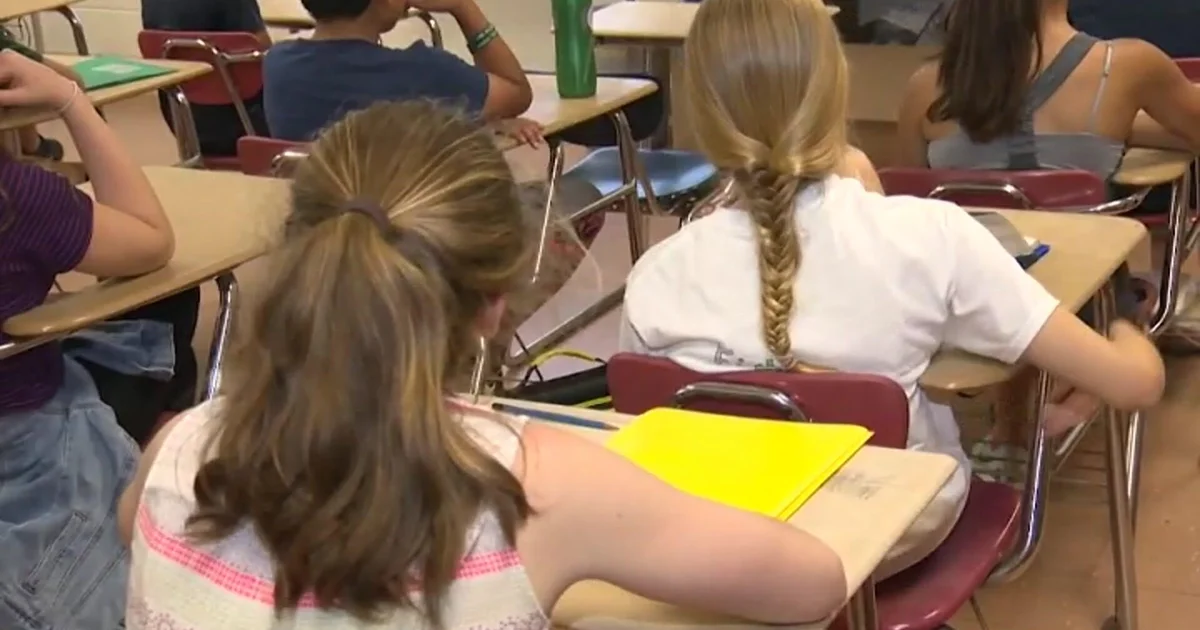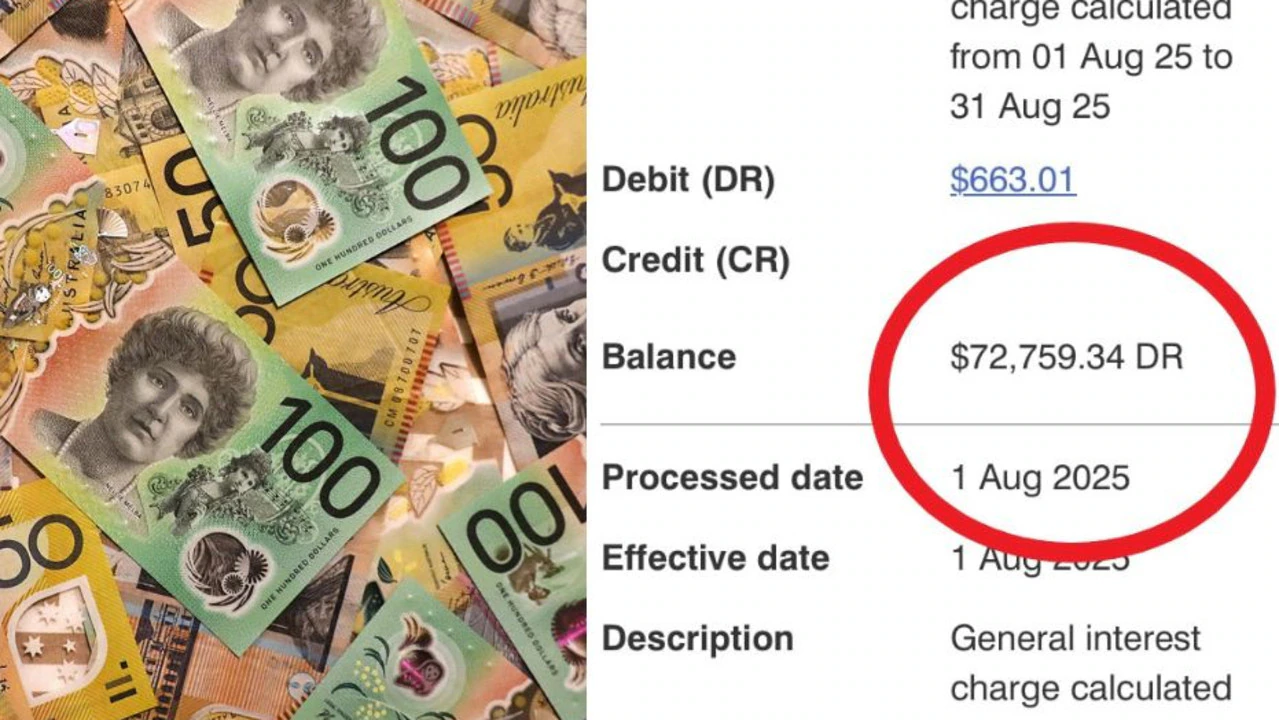
Jazmine Maldonado had seen news coverage of some Texas parents and students opposing a new state-developed curriculum. Even before the Texas State Board of Education approved the K-5 Bluebonnet Learning last fall, critics spoke out against it, claiming it infuses Christianity into public school lesson plans. But the Irving mother of five said she didn’t think her school district would adopt it.
“It’s a diverse population,” Maldonado said. “You can’t choose to elevate one religion over another, and that’s what Bluebonnet curriculum does.”
But in January, Maldonado received an email from Irving Independent School District that let the community know the district was adopting both the math and reading language arts (RLA) curricula for the 2025-2026 school year. Maldonado said she spent hours reading over Bluebonnet and found what she calls out-of-place religious lessons in the RLA portion.
“This really, really, truly caught me off guard,” Maldonado said. “I felt like it was a betrayal for the district, for my kids.”
North Texas school districts adopt Bluebonnet
Out of 59 North Texas school districts the CBS News Texas I-Team surveyed, five adopted Bluebonnet Learning RLA for this school year: Irving, Burleson, Crowley, Duncanville and Lake Worth. Adopting Bluebonnet Learning is optional for school districts, but for those that do, the state provides $60 per student in funding — $20 more per student than provided when districts adopt other state-approved material.
“It’s an attempt to try to get as many students and teachers the opportunity to gain access to high-quality instruction materials throughout the State of Texas,” said Todd Davis, associate commissioner of instructional strategy at the Texas Education Agency. “I can honestly say that there probably is not another curriculum in the State of Texas that has been more scrutinized and more vetted.”
Despite concerns from parents like Maldonado, Davis said the TEA stands by Bluebonnet and believes it’s a comprehensive curriculum that’s been customized for Texas.
But not everyone believes the curriculum succeeds in representing all Texans. Mark Chancey, a religious studies professor at Southern Methodist University, said he spent months studying Bluebonnet and is concerned about what he believes is a bias toward Christianity.
“There were far more lessons devoted to Christianity than to any other religious tradition, there were far more lessons devoted to the Bible than to any other sacred text, and there were far more lessons devoted to Jesus than to any other religious figure,” Chancey said. “We live in a diverse world, and public schools should equip students to navigate that diversity.”
The criticism
Chancey’s issue with Bluebonnet isn’t just that he believes it favors Christianity above other religions. He also takes issue with how the curriculum teaches about Christianity.
“The people that they invited to write these lessons had a very, very weak grasp of the material,” Chancey said.
In a letter Chancey sent to the State Board of Education, he included a few examples of where he believes the material falls short, including in a 5th grade poetry lesson on Psalm 23. The lesson states it’s one of the first known examples of free-verse poetry, without a consistent rhyming pattern.
“The 23rd Psalm and lesson doesn’t rhyme because it is an English translation of a Hebrew original,” Chancey said. “This is a case where whoever wrote that lesson didn’t bother to read the Wikipedia article on Psalms for basic research.”
Chancey, and a recent paper published by Rice University’s Baker Institute, also take issue with a 2nd grade lesson on activists that includes the biblical figure Esther alongside Rosa Parks and Martin Luther King, Jr.
The Baker Institute paper argues that the lesson “goes against scholarly consensus” that the story in the Book of Esther “is the stuff of fiction and legend.”
“I’m not only a biblical studies professor, I’m also a Christian,” Chancey said. “And I think these lessons talk about biblical material poorly.”
Bluebonnet supporters push back on criticism
Supporters of Bluebonnet accuse some of the criticism of being “inside baseball” disputes, and maintain that religious lessons are included only to teach academic lessons.
“It’s literature, as far as the curriculum is concerned,” said Marvin McNeese, Jr., a senior professor of government at the College of Biblical Studies, a Houston-based college. “If we had them reading ‘Romeo and Juliet,’ that doesn’t constitute proselytizing.”
McNeese reviewed the curriculum as part of a TEA advisory board. He said that, like “Romeo and Juliet,” the Bible is taught because of its historical and cultural relevance.
“Take a step back and look at the entire curriculum as a whole,” Davis said. “There is so much more value, so much more knowledge.”
Both critics and supporters agree that the lessons that reference Christianity make up a small portion of the overall curriculum. But some parents, like Maldonado, maintain that no matter how small, they don’t want religious lessons taught in public schools.
After she learned Irving ISD had adopted Bluebonnet, Maldonado reached out to the district with her concerns. She said she was placed on a panel to provide feedback, and she was told the district would review the curriculum to see if modifications needed to be made.
“That’s the comforting part, I was part of the process,” Maldonado said. “I would still want to see, okay, how did you change? How did you modify this lesson? And as a parent, I do have those rights to ask.”
In a statement, Irving ISD said:
In January 2025, the Irving ISD Board of Trustees approved the adoption of Bluebonnet Learning, a revised, state-provided, open education resource (OER) curriculum. This decision was made in response to updates approved by the State Board of Education, which replaced previously adopted materials – Amplify (Reading/Language Arts) and Eureka (Math) – with Bluebonnet Learning for kindergarten through fifth grade in November 2024.
Our adoption ensures that students have access to instructional materials that are fully aligned to the Texas Essential Knowledge and Skills (TEKS) and allows the district to access state funding to cover the cost of the materials, as Districts that adopt the state-provided curriculum receive financial support from the state for these materials.
We recognize that some lessons within the Reading Language Arts materials include references to religious texts or figures, as required by Texas Education Code Sec. 28.002, which states that instruction must include religious literature and its impact on history and culture. It is important to note that there is no religious instruction in the curriculum, and the references come from a wide range of faiths, not from a single tradition.
As with all state-approved materials, districts have the ability to make local modifications. Adjustments may include removing or supplementing lessons to ensure a broad range of perspectives are represented.
Our goal is to provide high-quality instructional materials that are representative of our diverse community and align with the district’s commitment to equity and inclusivity for all students, while remaining in full compliance with state standards.



